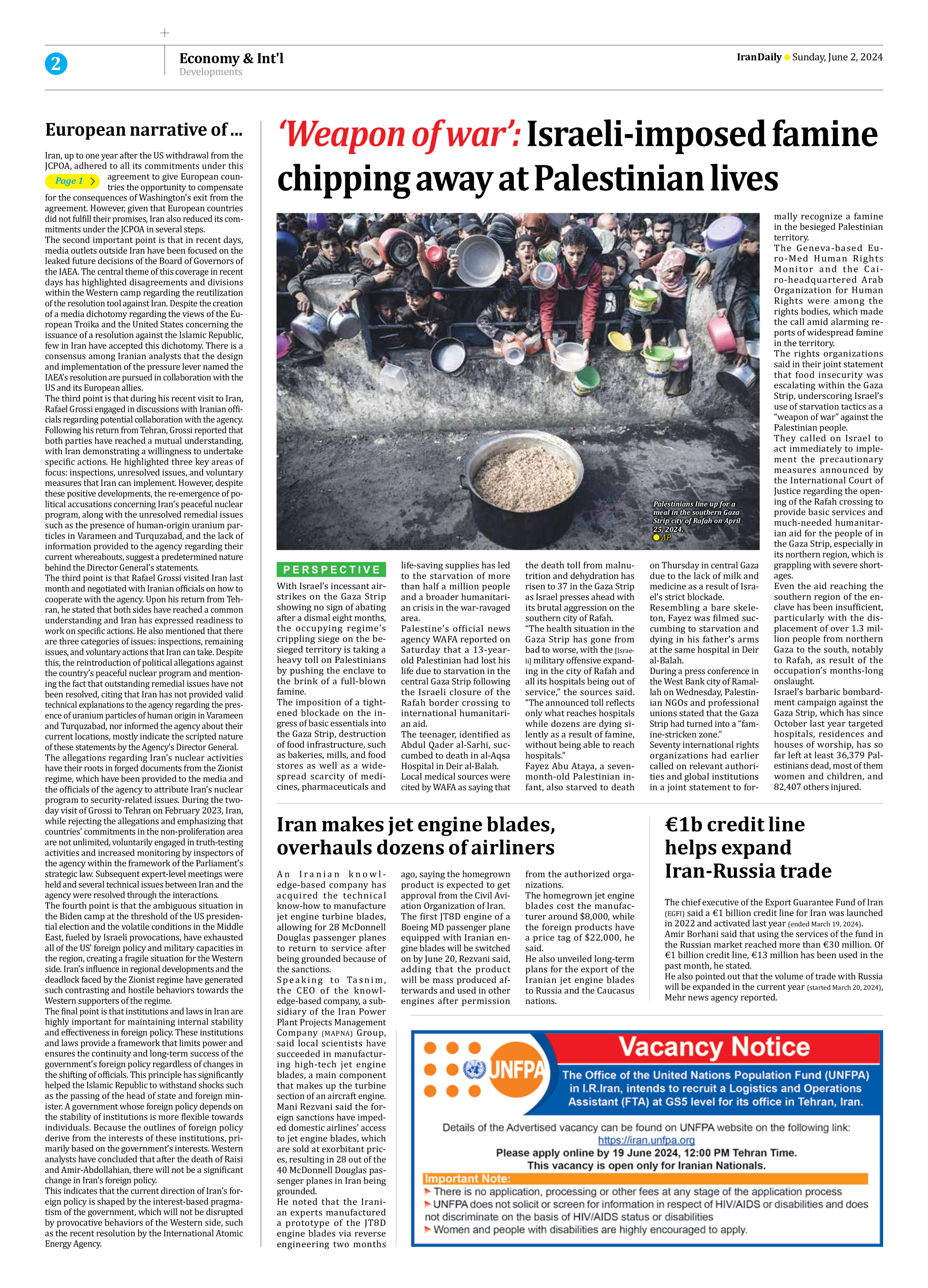
European narrative of ...
Page 1
Iran, up to one year after the US withdrawal from the JCPOA, adhered to all its commitments under this agreement to give European countries the opportunity to compensate for the consequences of Washington’s exit from the agreement. However, given that European countries did not fulfill their promises, Iran also reduced its commitments under the JCPOA in several steps.
The second important point is that in recent days, media outlets outside Iran have been focused on the leaked future decisions of the Board of Governors of the IAEA. The central theme of this coverage in recent days has highlighted disagreements and divisions within the Western camp regarding the reutilization of the resolution tool against Iran. Despite the creation of a media dichotomy regarding the views of the European Troika and the United States concerning the issuance of a resolution against the Islamic Republic, few in Iran have accepted this dichotomy. There is a consensus among Iranian analysts that the design and implementation of the pressure lever named the IAEA’s resolution are pursued in collaboration with the US and its European allies.
The third point is that during his recent visit to Iran, Rafael Grossi engaged in discussions with Iranian officials regarding potential collaboration with the agency. Following his return from Tehran, Grossi reported that both parties have reached a mutual understanding, with Iran demonstrating a willingness to undertake specific actions. He highlighted three key areas of focus: inspections, unresolved issues, and voluntary measures that Iran can implement. However, despite these positive developments, the re-emergence of political accusations concerning Iran’s peaceful nuclear program, along with the unresolved remedial issues such as the presence of human-origin uranium particles in Varameen and Turquzabad, and the lack of information provided to the agency regarding their current whereabouts, suggest a predetermined nature behind the Director General’s statements.
The third point is that Rafael Grossi visited Iran last month and negotiated with Iranian officials on how to cooperate with the agency. Upon his return from Tehran, he stated that both sides have reached a common understanding and Iran has expressed readiness to work on specific actions. He also mentioned that there are three categories of issues: inspections, remaining issues, and voluntary actions that Iran can take. Despite this, the reintroduction of political allegations against the country’s peaceful nuclear program and mentioning the fact that outstanding remedial issues have not been resolved, citing that Iran has not provided valid technical explanations to the agency regarding the presence of uranium particles of human origin in Varameen and Turquzabad, nor informed the agency about their current locations, mostly indicate the scripted nature of these statements by the Agency’s Director General.
The allegations regarding Iran’s nuclear activities have their roots in forged documents from the Zionist regime, which have been provided to the media and the officials of the agency to attribute Iran’s nuclear program to security-related issues. During the two-day visit of Grossi to Tehran on February 2023, Iran, while rejecting the allegations and emphasizing that countries’ commitments in the non-proliferation area are not unlimited, voluntarily engaged in truth-testing activities and increased monitoring by inspectors of the agency within the framework of the Parliament’s strategic law. Subsequent expert-level meetings were held and several technical issues between Iran and the agency were resolved through the interactions.
The fourth point is that the ambiguous situation in the Biden camp at the threshold of the US presidential election and the volatile conditions in the Middle East, fueled by Israeli provocations, have exhausted all of the US’ foreign policy and military capacities in the region, creating a fragile situation for the Western side. Iran’s influence in regional developments and the deadlock faced by the Zionist regime have generated such contrasting and hostile behaviors towards the Western supporters of the regime.
The final point is that institutions and laws in Iran are highly important for maintaining internal stability and effectiveness in foreign policy. These institutions and laws provide a framework that limits power and ensures the continuity and long-term success of the government’s foreign policy regardless of changes in the shifting of officials. This principle has significantly helped the Islamic Republic to withstand shocks such as the passing of the head of state and foreign minister. A government whose foreign policy depends on the stability of institutions is more flexible towards individuals. Because the outlines of foreign policy derive from the interests of these institutions, primarily based on the government’s interests. Western analysts have concluded that after the death of Raisi and Amir-Abdollahian, there will not be a significant change in Iran’s foreign policy.
This indicates that the current direction of Iran’s foreign policy is shaped by the interest-based pragmatism of the government, which will not be disrupted by provocative behaviors of the Western side, such as the recent resolution by the International Atomic Energy Agency.







